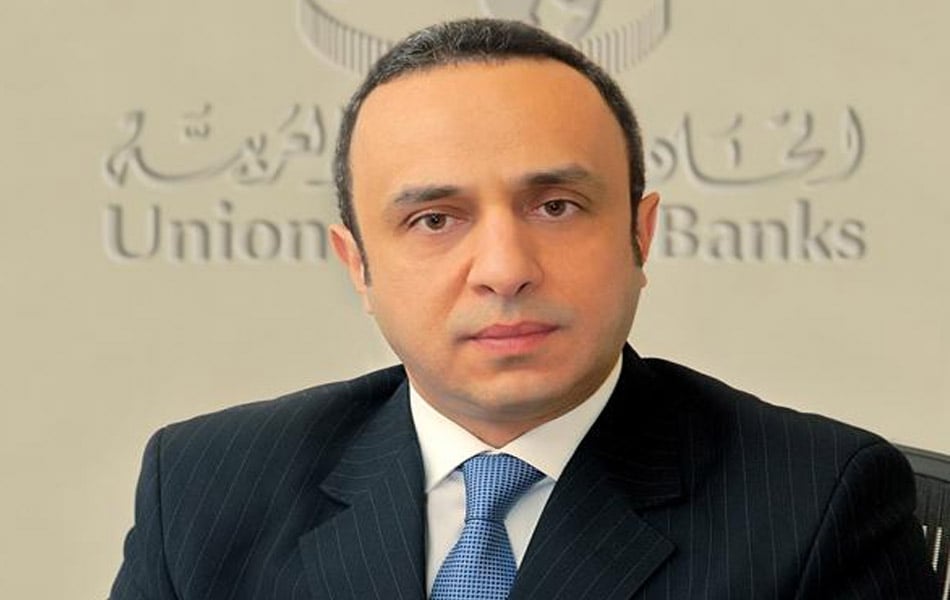“Arab banks today do not have enough flexibility to absorb and respond to the successive challenges they face daily, whether from the effects of wars, the epidemic, the risks of economic stagnation or inflation.”
These words were said by the Secretary-General of the Union of Arab Banks, Wissam Fattouh, in an interview with “Economy Middle East”, coinciding with the union’s release of a study dealing with “inflationary stagnation in the world” and his expectation that this inflationary boom would not continue for more than two years unless unexpected crises arise.
The Union of Arab Banks believes that stopping the current stagflation depends on two main factors: First, the interaction between the continued tight conditions in labor markets, supply chain bottlenecks, and the nature of central banks’ response to high inflation rates by raising interest rates, which they adopted as the main weapon in the face of inflation. Second is the duration of the Russian-Ukrainian crisis and its repercussions on energy prices, food supplies, and global growth.
Faced with this reality, Fattouh urges Arab banks to raise their flexibility very quickly in order to absorb negative repercussions and benefit from positive ones.
The Union of Arab Banks recently held its annual conference in Cairo under the title “The Repercussions of the International Crisis and Its Impact on the Economic Conditions in the Arab Region.”
Economy Middle East had the following interview with Fattouh where we asked:
In your opinion, what are the most prominent challenges facing our Arab banks as a result of the accelerating developments globally?
Inflexibility is the most prominent challenge facing our Arab banks today. Today, our banks in the Arab world do not have enough flexibility to absorb and respond to the successive challenges we face daily, whether from the effects of wars, the epidemic, the risks of economic recession, or inflation.
Flexibility needs innovative strategies, policies, and techniques to support the continuity and sustainability of banks and raise their ability to compete with non-banking institutions that provide banking services, and perhaps who are armed with better quality, flexibility, and speed, and also lower cost. We cannot overlook the non-banking institutions that take the role of banks because of their flexibility, speed of innovation, agile structure, and quick reliance on the latest technologies which they continuously develop. Our Arab banks have become like a sick person when facing the challenges ahead.
How can oil prices contribute to improving the position of Arab banks and enhancing their liquidity?
On a daily basis, we hear that the Russian-Ukrainian war and oil price fluctuations will make poor countries poorer and rich countries richer, and this will be reflected on banks in rich and poor countries.
In oil-producing countries, banks’ liquidity will rise, and they will be able to develop their infrastructure, keep pace with technological development, and invest in technological innovation. As for the non-oil-producing countries, their situation will worsen and may lack the ability to sustain and continue. Authorities in poor countries will seek to merge and restructure small banks. Strong banks will become stronger and weak banks will become extinct.
At the conclusion of your conference, you demanded that the role of central banks be strengthened in absorbing the shocks resulting from the repercussions of the international crisis. How do you think that could happen?
The answer is by establishing a resilient and wise monetary policy. For example, Lebanon suffered from inflexible monetary policies. If the Central Bank of Lebanon realized the danger of the monetary policy it followed and adjusted it with great flexibility, we might have been able to avoid the financial catastrophe. Accordingly, I call on central banks to raise flexibility and rationalize monetary policies.
The role of a digital currency issued by central banks (CBDCs) cannot be overlooked. Arab banks should raise technical competencies and cooperate to keep pace with technological development in digital currencies.
The Federal Reserve will make more interest rate hikes this year. How does this impact Arab banks?
As I mentioned earlier, by increasing the flexibility of all Arab bank’s systems and infrastructure, they will be able to absorb negative repercussions and benefit from positive ones. Banks in Arab countries should raise their skills to gain greater flexibility very quickly.
How can the Arab region face high rates of inflation?
We suffer daily from the problem of inflation, whether at the individual, family level, or society as a whole, including institutions. Institutions can increase their flexibility, but the problem lies in raising the resilience of the capabilities of individuals, families, and communities that are suffering from hunger and loss of energy capabilities. It’s the 2F concept: Food and Fuel. The problem goes beyond the scope of the banking sector, and the solution lies in cooperation between sectors, individuals, and institutions, whether through alliances, agreements, or friendly relations.








